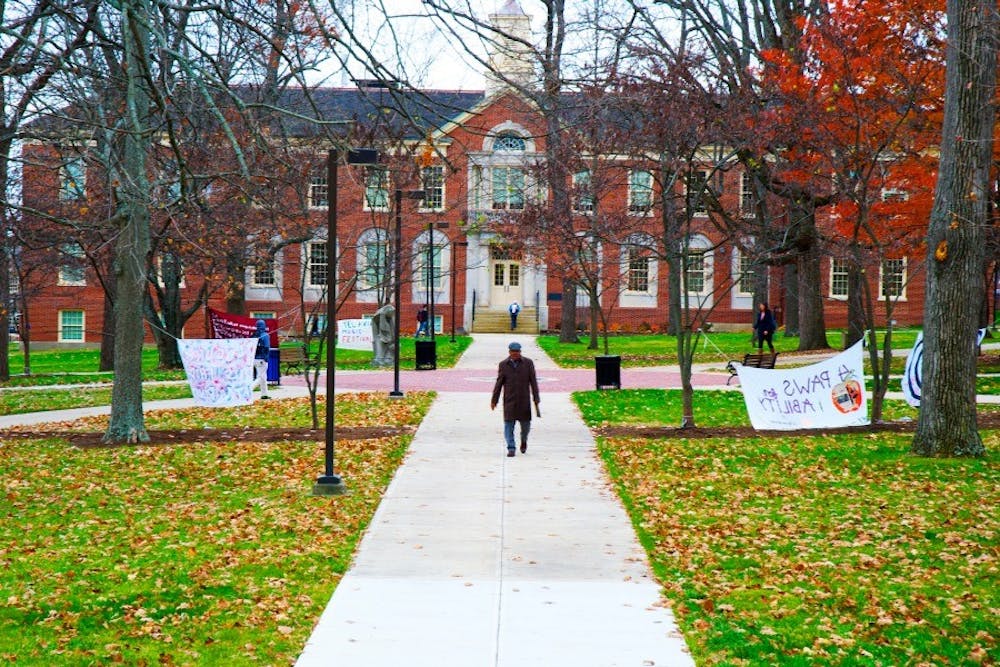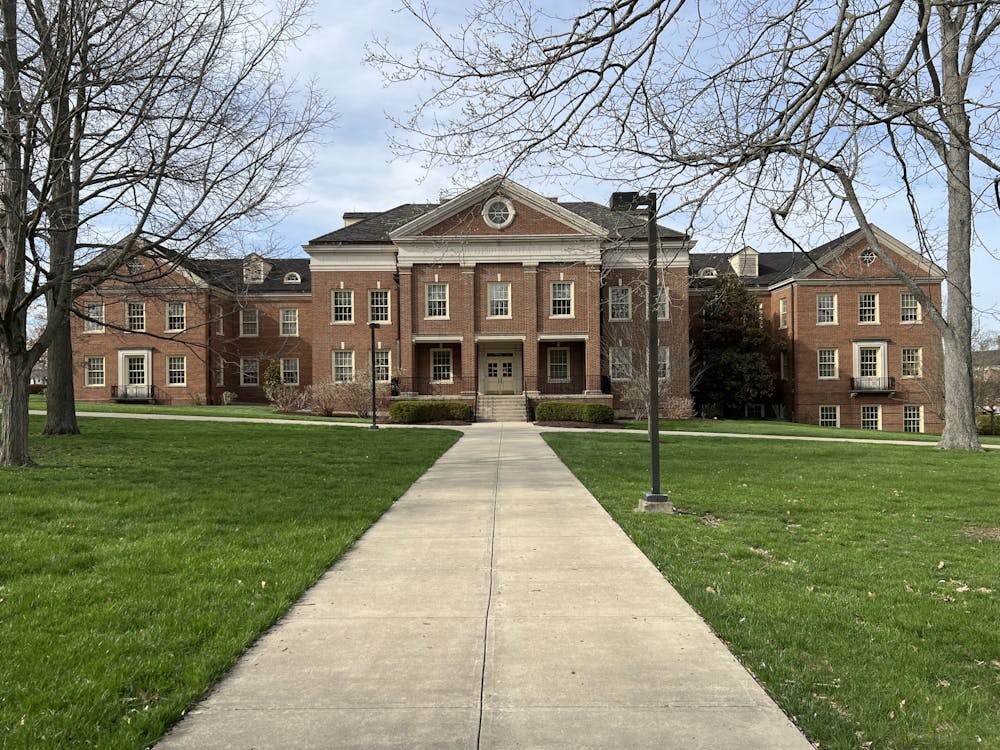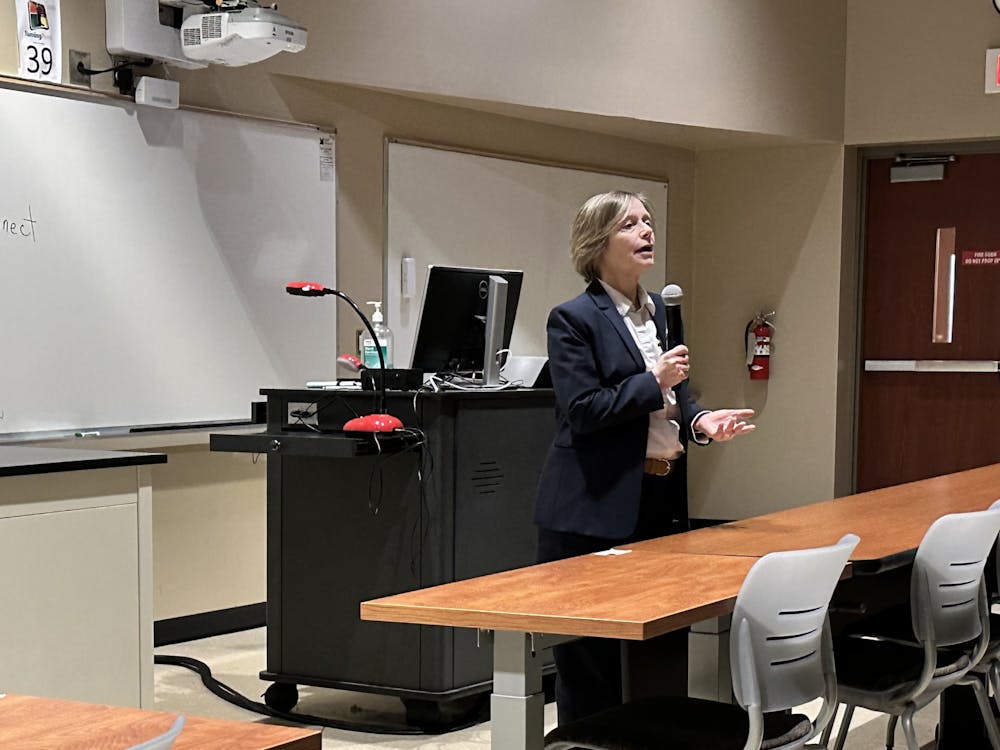By Megan Zahneis, News Editor
According to its website, EducationCounsel has partnered with various academic institutions and higher education foundations to develop solutions to problems of diversity and inclusion.
An email sent to all academic advisors through Canvas said that EducationCounsel was contracted to aid in a greater awareness of diversity on campus.
"They will work with us to design highly interactive, solution-oriented events that leverage recent student interest in contributing to discussions related to enhancing diversity and inclusion efforts on campus," the message read in part. "Through these interactions they will help us develop institution-wide understanding and awareness of the legal and policy framework for access, diversity and inclusion efforts at Miami University."
Three EducationCounsel representatives - co-founder and managing partner Art Coleman, senior legal and policy advisor Terri Taylor and policy assistant Amber Saddler - made the trip to Oxford to meet with 15 groups of faculty, staff and students over a three-day span.
Coleman and Taylor led the first event, a faculty forum on Tuesday, which was attended by about 20 faculty members, many of whom voiced their dissatisfaction with the status quo as it pertains to diversity.
Madelyn Detloff, an associate professor of English with a joint appointment in Women's, Gender and Sexuality Studies, said during the forum that the students and staff are unhappy with what they perceive as an administrative lack of transparency on diversity issues.
"What I experience from the students is frustration with the connection between what the university says it does and what happens," Detloff said. "On paper, [we] looked pretty good but in practice we look very bad. Not just neutral, but very bad."
Detloff and others rattled off several recent instances of diversity issues on campus, including the defacing of a pro-LGBTQ+ mural in Thomson Hall, the death of international student MinGi Kang and an incident in which a transgender male student was blocked from serving as a resident assistant.
Brian Kirkmeyer, Assistant Dean for Student Success and instructor in the College of Engineering and Computing, told of questions he gets as the white advisor to the National Society of Black Engineers.
"'Are you supposed to be black to do that?'" Kirkmeyer said he's been asked. "Do we have our heads in the sand, or is this just the reality that we continually, societally, have to deal with?"
One faculty member explained that he was asked by his department chair whether he'd be willing to be identified as a "friendly" faculty member who could mentor students flagged by administration as being "flight risks."
Enjoy what you're reading?
Signup for our newsletter
Several faculty members in attendance voiced dismay at being forced to undertake much of the diversity-related work on campus, including committee service and minority student mentoring.
One faculty member said that, as a minority, she must mentor many minority students who have no one else to identify with.
"The students came to my office because they were dying for the kind of mentorship and conversation and support [I could provide]. Some would stay for an hour and two hours … they had no one to talk to them about the issues, no one they could feel comfortable talking to."
Detloff said she and her colleagues do it all out of an implicit sense of duty and citizenry.
"We know we won't get compensated for it or recognized for it. It's not really going to count towards promotion or tenure or anything like that," And yet, [we] can't sleep at night because these things are going on."
It all amounts to a "culture of sameness," according to anthropology department chair Mark Peterson.
"I think that whiteness is a marked category. It's treated as if it's the norm and the other things are variations from it," Peterson said. "Casual conversations at Miami would be fraught and you would say things and realize that people had very strange notions about otherness. Or notions that seem strange to them that they're starting to see as very mainstream at this university. And, of course, if you're in an environment, for example, where no black people are present, it's considered okay to make racist jokes because 'you're not offending anyone.'"
Amber Franklin, an assistant professor of speech pathology and audiology, has a theory on why the culture at Miami is the way it is.
"This is the first time I've taken the time to come to an explicit diversity talk about change on campus. And part of the reason for me is that I almost feel like Miami refuses to accept really who they are," Franklin said. "This is an institution that's founded on the Greek systems, the mother of fraternities. The Greek system by nature is exclusionary, monolith, and I don't know if it's possible, truly, to change the culture when the Greek system and all the money that it brings in and the alumni and everything is such an integral part of the institution. I know there are some other institutions that in the past have abolished these systems.
"That's not going to happen here. It's not going to happen. I don't know that it's realistic to think that the climate can change."
Peterson also expressed worry for one of his faculty members in particular.
"I have a faculty member who has worked her tail off especially with international students in large 50-student section of an intro class. And she's leaving at the end of this year," Peterson said. "She doesn't have another job. She's leaving because she does not like the lack of cosmopolitan atmosphere. And she's leaving because, she said, 'I cannot maintain my professional networks and my professional productivity and do the work it requires to be a good teacher at this university.'"
"It's the first time I've had a person leave without another job, and it really impacted me because I'm scared for her."
One faculty member said that while the results of the EducationCounsel visit are yet to be determined, she remains guardedly optimistic for change, especially when it comes to diverse faculty recruitment and retention.
"I understand there is only so much an institution can do, but I think that the general sense of the faculty is that it takes a lot of time to respond to real needs on the ground,' one faculty member said, speaking on terms of anonymity. "We need actions. We need for the institution to put their money where their mouth is. We need resources. I'm glad that Miami is doing this to show that it's concerned, but [I'm not sure] hiring an external consultant is the most effective way, paying an exorbitant fee.
"It's never too late. I do hope that the upper administration does something in response to the report."
Detloff fears change will be hard to come by, something EducationCounsel hopes to combat.
"I think the will to change has to happen at a structural level," Detloff said. "There's a great deal of fear that we will lose our financial base and really transform our character as a predominantly white institution into one that is more cosmopolitan and one that is more truly diverse both in class and race and different kinds of ways."




